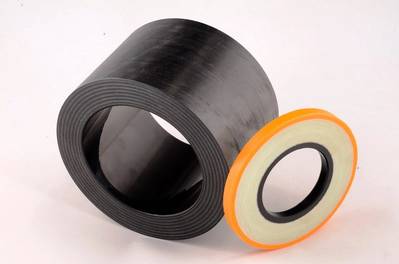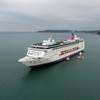DNV GL Raises the Standard for Thermoplastic Composite Pipes
DNV GL has launched a new standard that allows operators to choose thermoplastic composite pipes (TCP) instead of steel or traditional flexibles, enabling substantial cost reductions throughout the project lifecycle.
After the successful and wide adaptation of the recommended practice (RP) DNVGL-RP-F119 by the industry for qualification of TCP for various applications from dynamic to static applications since its publication in 2015, the RP has now been converted to an official DNV GL standard DNVGL-ST-F119. This reflects the growing confidence in the TCP technology and the methodology of RP to deliver safe and reliable performance to the industry.
Almost a decade after the manufacturing of the first Thermoplastic Composite Pipes, this novel non-metallic pipe concept is increasingly gaining the attention of the Oil and Gas industry. Spoolability, significantly lower weight to strength ratio compared to conventional metallic pipes and the absence of corrosion, make TCP a potentially disruptive technology in the pipeline industry. Various pilot projects with different operators have been initiated in the past few years to use TCP in offshore oil and gas projects to cut cost and increase efficiency.
Throughout this time DNV GL has played the role of an independent certification body for TCP to facilitate the adaptation of the technology by the industry, while ensuring the reliability and safety targets comparable to conventional metallic pipes.
Since its publication, the RP has been the only available document for qualification of TCP in the industry and has been used in almost all of the TCP pilot projects across the globe. The design and qualification methodology of the RP has been adopted by all manufacturers of TCP as well as developers of hybrid flexible pipes in which the pressure armor within a conventional steel-based flexible is replaced by TCP.
The next step for DNV GL is to help the industry identify attractive applications and support stakeholders through the decision process. An upcoming DNV GL type approval scheme being issued later this year will make it easier for engineers to design pipeline systems using TCP.















